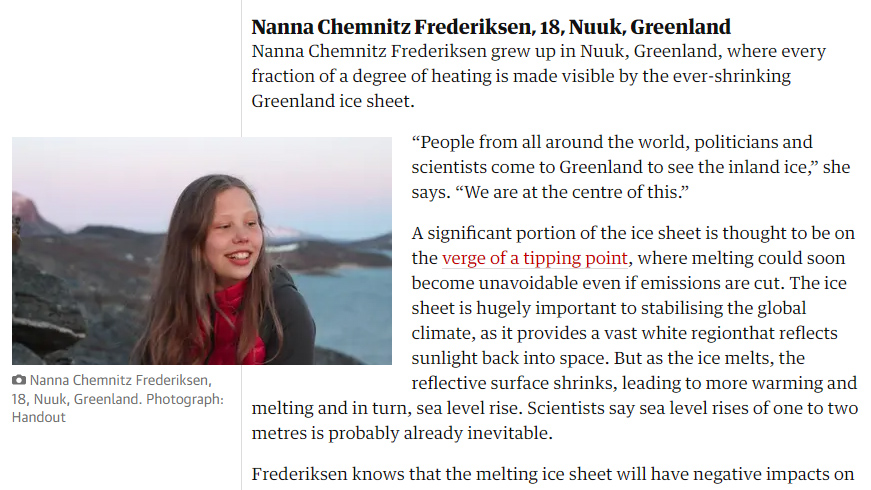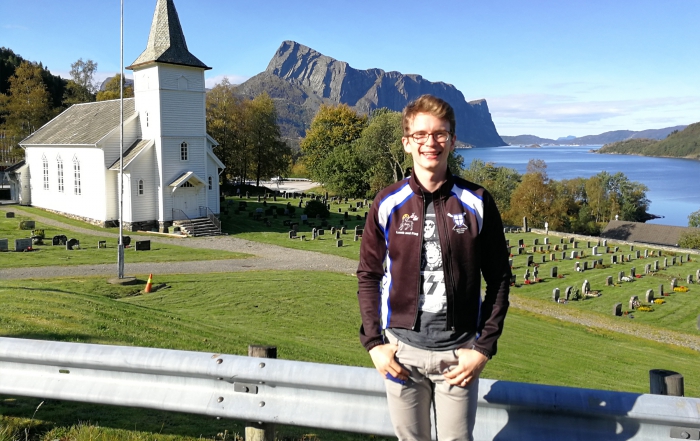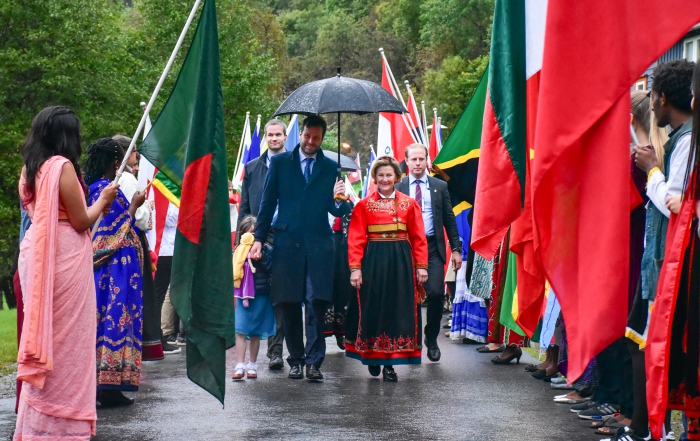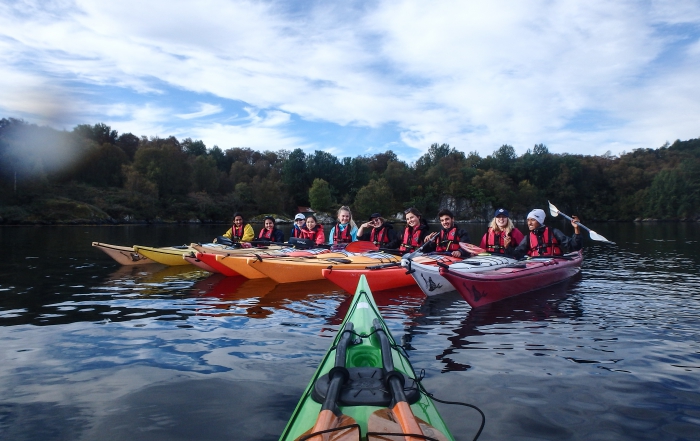“People from all around the world, politicians and scientists come to Greenland to see the inland ice,” she says. “We are at the centre of this.”
A significant portion of the ice sheet is thought to be on the verge of a tipping point, where melting could soon become unavoidable even if emissions are cut. The ice sheet is hugely important to stabilizing the global climate, as it provides a vast white region that reflects sunlight back into space. But as the ice melts, the reflective surface shrinks, leading to more warming and melting and in turn, sea level rise. Scientists say sea level rises of one to two metres is probably already inevitable.
Frederiksen knows that the melting ice sheet will have negative impacts on communities across Greenland, especially in northern settlements such as Qaanaaq where permafrost melting is destabilizing homes and roads and impacting how fishers and hunters operate.
But her real concern lies on the impact it will have globally. “I am not so scared of what the effects of the melting of ice in Greenland will be,” Frederiksen says, “It scares me what effect it can have for the rest of the world.”
Latest News
Ed Love – Visiting Intern
Over the past fortnight, Ed Love (a doctoral candidate in Egyptology at St. John's College, Oxford) has been on a teaching internship at RCN. He has been visiting classes, contributing to our extra academic programme and has been [...]
HM Queen Sonja at RCN
HM Queen Sonja "Education is the most valuable we can give to you young people". This was the message Her Majesty Queen Sonja gave in front of a packed auditorium at the end [...]
Kayak Leader Course
The UWC RCN Outdoor department held the Kayak Leader Course on the weekend 16th to 17th of September for staff and students at UWC Red Cross Nordic, enabling the successful participants to lead kayak trips [...]




